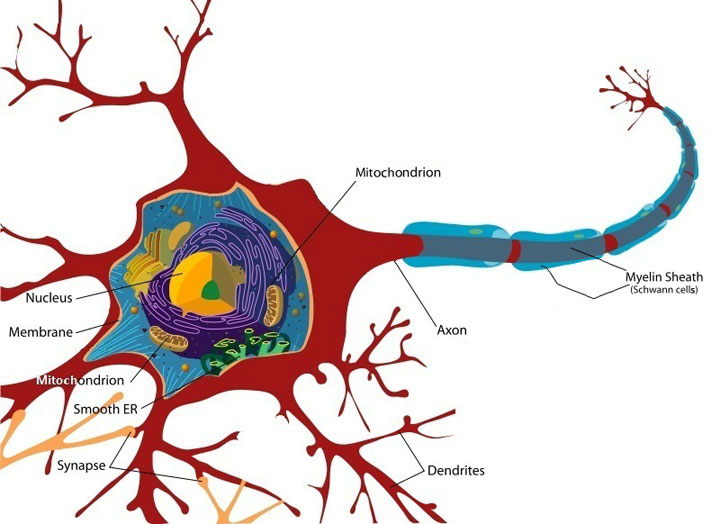Alpha Lipoic Acid May Help Patients with Multiple Sclerosis

Multiple sclerosis (MS) is a chronic autoimmune disease that attacks the central nervous system. People with MS have periods where the condition is inactive. However, the disease progressively worsens and can cause permanent disability. MS may also increase the risk for other conditions (such as erectile dysfunction). (iii.29, 70)
Although what causes MS isn't completely understood, genetics and certain dietary choices can increase the risk of developing it. The good news is that antioxidants such as alpha lipoic acid, quercetin, turmeric, and resveratrol could actually help protect you from MS. (iii.29, 71)
How Does Multiple Sclerosis Damage the Brain?
In active MS, over-stimulated immune system cells create chronic inflammation and too many free radicals that injure brain tissue. Signs of injury show up as lesions (commonly called plaques) in the brain. (iii.29, 72)
| Effect | What It Does |
|---|---|
|
Demyelination |
|
|
Mitochondrial Damage |
|
|
Damage to the blood-brain barrier |
Allows more inflammatory immune system cells to cross into the brain to attack neurons. (iii.29) |
|
Release of Toxic Iron Deposits |
MS typically worsens between ages 40-50, which experts believe may be linked to age-related excess iron in the brain. (iii.29, 72) It's thought that the excess iron released from myelin and cell destruction could be why lesions continue expanding even though inflammation is actually reduced at later stages of MS. (iii.29, 72) |

Figure III.8: Neuron
How Can Alpha Lipoic Acid Help?
Free radicals promote the progression of multiple sclerosis. People with MS often have lower antioxidant levels, leaving them vulnerable to free radical damage. Studies suggest alpha lipoic acid's powerful antioxidant properties could help safely slow down the progression of multiple sclerosis. (iii.2, 15)
Alpha lipoic acid is also a potent anti-inflammatory sulfur-based compound that helps maintain cell energy in the brain. Preliminary research suggests it may also help suppress inflammation in MS by: (iii.15, 29, 71, 73)
- ↓ Levels of MMP-9, an enzyme that allows inflammatory immune cells to cross the blood-brain barrier into the brain. (This effect, however, was not found in a later clinical trial at a dosage level of
1200 mg/day of alpha lipoic acid.) - ↓ Adhesion molecules that also help inflammatory molecules move into the brain.
Clinical Evidence
Some of these benefits were demonstrated in results from a recently published clinical trial. In it, patients were divided in 2 groups - one to take
- Significantly ↑ antioxidant levels in patients
- Substantially ↓ production of inflammatory cytokine proteins and adhesion molecules (compared to levels in patients that took a placebo).

Recommended Dosage for MS
Nutritional experts suggest taking


